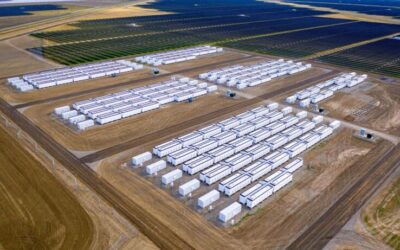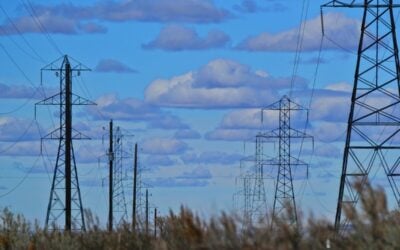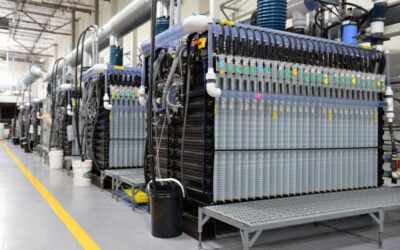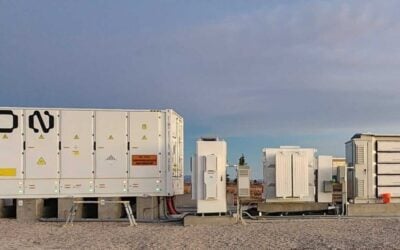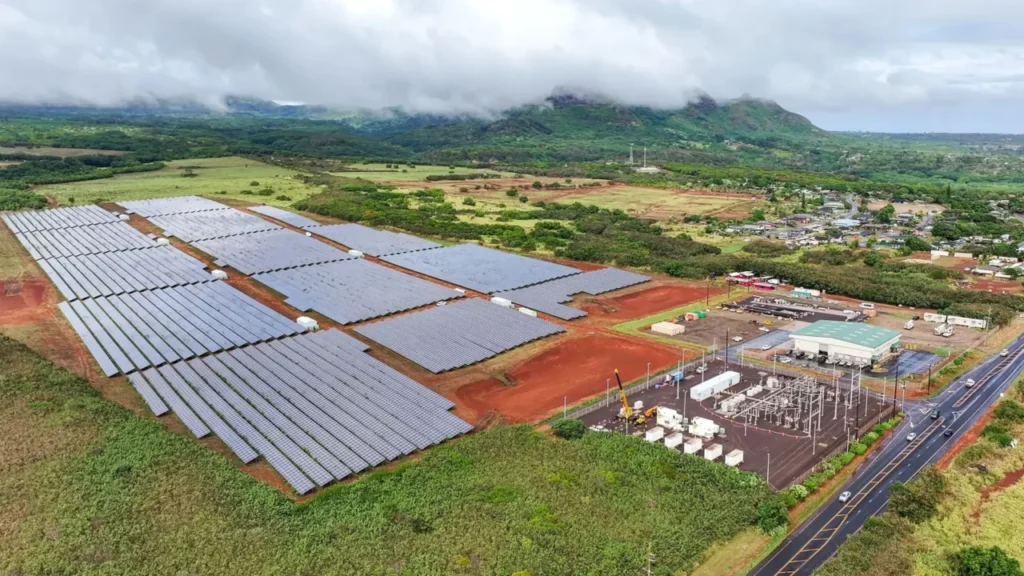
Battery recycling company Redwood Materials is to take on the decommissioning of a 4.6MWh stationary storage plant on the Hawaiian island of Kaua’i.
Set up by Tesla’s co-founder and long-time chief technologist, JB Straubel, Redwood Materials will work with the Kaua’i Island Utility Cooperative (KIUC) to decommission and recycle the first-generation storage project at the 20MW Anahola solar array.
From its base in northern Nevada, USA, Redwood’s mission is to create a circular supply chain for lithium-ion batteries, recycling materials from decommissioned batteries for use in new storage products.
Having so far focused predominantly on recycling batteries from electric vehicles, Redwood Materials’ collaboration with KIUC marks one of the company’s first significant step into the world of grid-scale battery recycling.
Try Premium for just $1
- Full premium access for the first month at only $1
- Converts to an annual rate after 30 days unless cancelled
- Cancel anytime during the trial period
Premium Benefits
- Expert industry analysis and interviews
- Digital access to PV Tech Power journal
- Exclusive event discounts
Or get the full Premium subscription right away
Or continue reading this article for free
In a statement on the project, Redwood said: “More than just a utility-scale solar venture, [Anahola Solar] represented KIUC’s foresight into the next era of energy and stationary storage. As this site reaches its end-of-life, Redwood is managing its sustainable and responsible decommissioning, transport and our northern Nevada facility.
“The energy storage landscape has seen remarkable growth, with the United States deploying 4.8GW last year along. These numbers are only expected to increase every year going forward, underscoring the imperative of overseeing these systems responsibility throughout their entire lifecycle, from initial deployment to eventual decommissioning.”
Redwood Materials has caught the eye of some significant backers, not least the US Department of Energy, whose Loan Programs Office earlier this year offered a conditional US$2 billion loan to the company for the construction and expansion of its facility in McCarran, Nevada.
The company is aiming to play a central role in the creation of a domestic supply chain for lithium-ion batteries products in the US, with ambitions to produce up to 100GWh worth of anode and cathode in materials in the US. Until now, much of the production of these critical materials has taken place in Asia.
The reshoring of the supply chain will allow battery and automotive manufacturers to meet the stringent critical mineral and battery component requirements for consumers to qualify for EV tax credits introduced under President Joe Biden’s Inflation Reduction Act.

